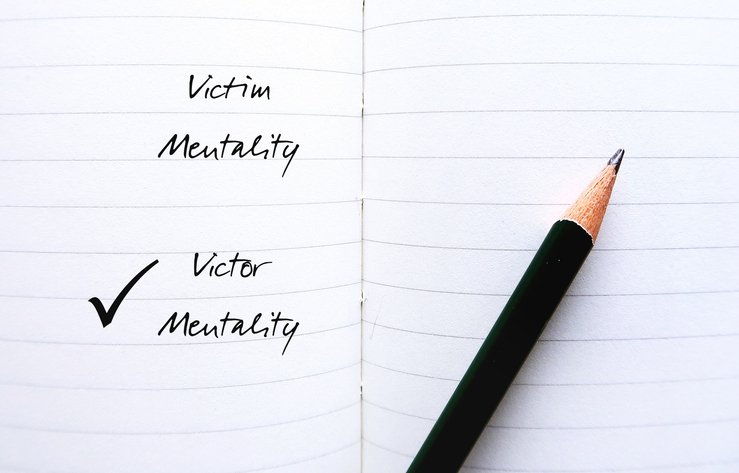Think about the last time you found yourself or a loved one asserting any of the following statements:
- That’s not my fault/I’m not responsible for that
- I can’t do anything about this
- Everything fails anyway, so there’s no hope in trying to change anything
Would you say that the statements above are spoken by someone who believes they can influence circumstances in their life or someone who believes they are powerless in life? Is it really true that other people or situations are to blame for everything “bad” in your life?
St. Joseph Institute For Addiction is here to shed some light on what has been called “victim mentality” and how it plays a role in substance use disorder, making recovery much more difficult.
The Victim Mentality and Learned Helplessness
It’s important to clarify that many people have been victims of circumstances or people outside of their control. For example, some people are victims of psychological, sexual, or physical abuse. Others are victims of natural disasters. Others are victims of petty crimes, like robbery or vandalism.
Victimization is factual; it is a specific action or thing that happens to someone at a specific point in time. On the other hand, a victim mentality is a perspective. It’s a way of looking at the world, and it can develop in a person whether or not they have been actual victims of crime or trauma. Three beliefs create the victim mentality:
- “Negative events, setbacks, and pain were always present in the past and they will always occur in the future.”
- “I’m not responsible for anything bad that’s happened. On the contrary, if I’m suffering or others are suffering, it’s due to the actions of someone other than me.”
- “Changing or attempting to modify a painful or unhealthy situation is pointless, because nothing ever works out to my favor.”
You can start to imagine the type of person who believes these things. They probably feel little to no motivation to change the negative situation they may be dealing with. They also probably expect the worst, even of neutral or positive events.
Not everyone who has been an actual victim will develop a victim mentality. The victim mentality develops when a person has experienced some kind of trauma and has not been able to cope with it in a healthy way. This may be because they lacked the support they needed at the time of the trauma. In the absence of the resources and tools they needed to cope, they developed an attitude of powerlessness.
Neither victimization nor a victim mentality directly cause addiction. However, the feeling of powerlessness can fuel an addiction, making the person believe they are “doomed” to be addicted because of what has happened to them. This can make it difficult for concerned family and friends to offer help, and, if the person enters a treatment program, can increase the risk for relapse.
How The Victim Mentality Can Thwart Sobriety
Before breaking free from an addiction, the victim mentality can hold you hostage for years in the belief that you simply cannot get sober. If you can get past that hurdle, you may find that you struggle with the following victim mentality-induced tendencies in recovery:
- A constant need for people to acknowledge how they’ve wronged you
- Seeing other people’s problems as black and white and feeling little to no empathy for others’ hardships
- Holding grudges and concluding that the entire world is unjust and filled with people who are arbitrarily better off than you
- Passively carrying out the day with the idea that bad things will happen at any moment or that failure is always around the corner
- Emotional unavailability with others due to a pervasive feeling of helplessness
The list can continue, but the central theme of the victim mentality is avoiding change and growth. This aversion to progress directly thwarts attempts to get and remain sober and can actively contribute to a relapse. That’s why the victim mentality is something we tackle at St. Joseph Institute for Addiction in Port Matilda, Pennsylvania, throughout our drug and alcohol treatment program. You can also seek help for it through our mental health services.
Contact our mental health team today to learn more about the scope and implications of a victim mentality on your recovery or that of a loved one. We’re here to help!


